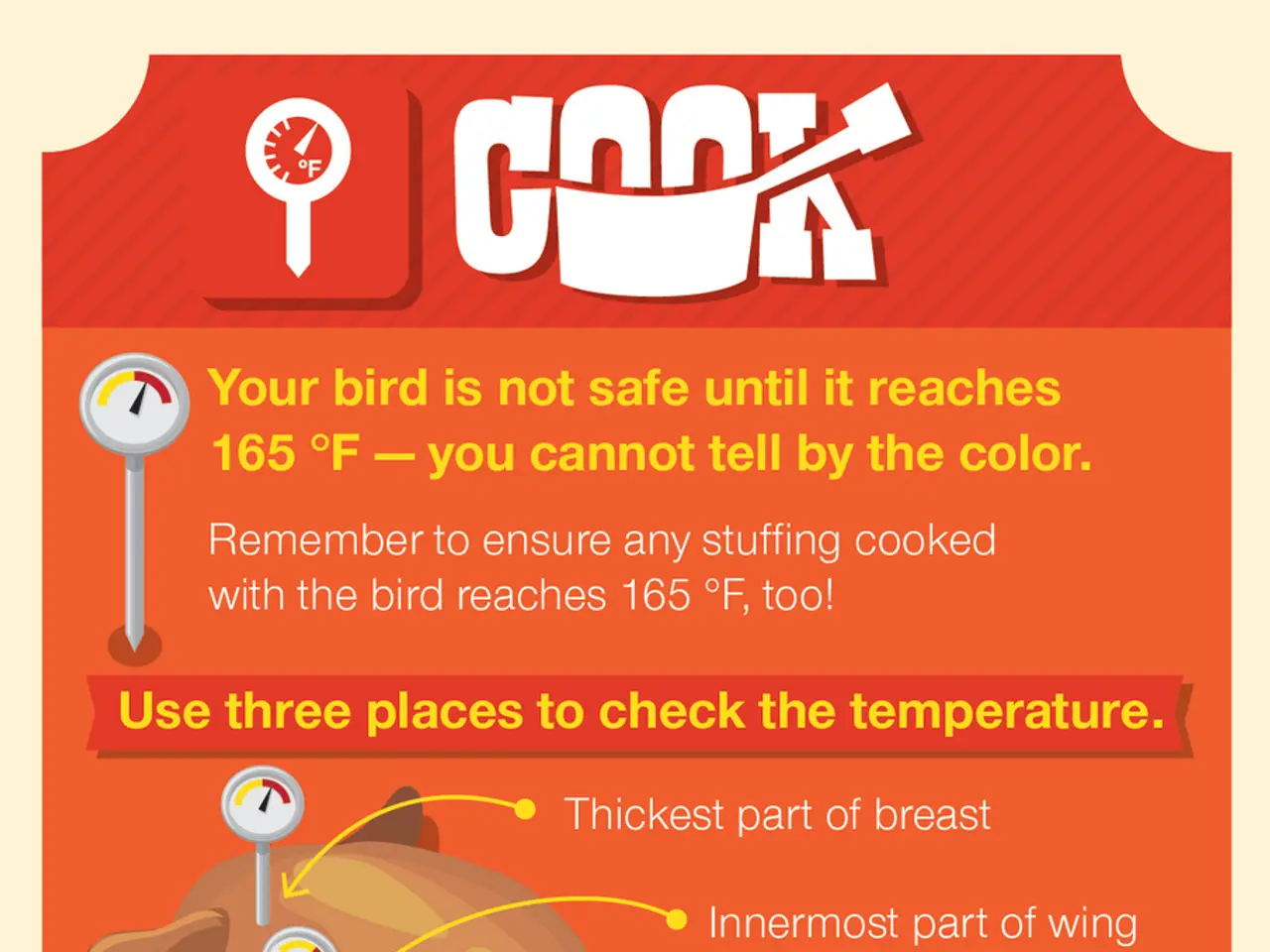Title: A Comparison of FREPA, RSPCA Approved, and Australian Certified Organic Free-Range Chicken Certification Systems
Unraveling the Various Implications of 'Free Range' Poultry Production
In the world of free-range chicken production, three certification systems stand out: Free Range Egg & Poultry Australia (FREPA), the RSPCA Approved Farming Scheme, and Australian Certified Organic (ACO). Let's delve into their welfare standards and compliance monitoring.
FREPA (Free Range Egg & Poultry Australia)
FREPA sets a national standard specifically for free-range poultry welfare in Australia. The standard requires birds to have meaningful access to an outdoor range with vegetation, regulates stocking densities both indoors and outdoors to ensure welfare, and emphasizes natural behaviors such as foraging, dust bathing, and pecking.
Compliance monitoring involves audits conducted by third-party auditors, ongoing inspections to ensure compliance with FREPA standards, and certification renewal dependent on successful routine audits.
RSPCA Approved Farming Scheme
The RSPCA Approved Farming Scheme boasts very robust animal welfare criteria designed to exceed basic legal minimums. It requires lower stocking densities than many other schemes, has a strong focus on natural behaviors, and includes detailed management practices to minimize stress and injury.
Compliance monitoring is rigorous, with independent auditing by qualified assessors, including unannounced inspections, and a strong emphasis on continuous improvement and higher welfare outcomes.
Australian Certified Organic (ACO)
ACO's certification is primarily focused on organic farming practices. Free-range poultry must have access to the outdoors and be raised without antibiotics, synthetic chemicals, or growth promotants. While animal welfare includes conditions that support natural behaviors, the standards may be less detailed or prescriptive on space and enrichment than RSPCA.
Compliance monitoring involves annual audits by accredited organic certifiers, including system inspections and testing for residues. Welfare checks are part of the broader organic certification but may not be as rigorously detailed as RSPCA welfare audits.
Summary Comparison:
| Aspect | FREPA | RSPCA Approved | Australian Certified Organic (ACO) | |-----------------------|-----------------------------------------|-----------------------------------------|----------------------------------------| | Welfare focus | Free-range specific welfare standards | Highest welfare standards, exceeding legal minima | Welfare linked with organic principles, less detailed on welfare specifics | | Outdoor access | Mandatory with vegetation and range space | Mandatory, with strong emphasis on natural behaviors and enrichments | Mandatory, with minimum outdoor area, organic certified pasture/soil | | Stocking density | Regulated indoors & outdoors | Lower densities than most schemes | Less prescriptive; organic regulations apply, focus on natural conditions | | Natural behaviors | Supported, with environmental enrichments | Comprehensive requirements for natural behavior support | Supported but less prescriptive than RSPCA | | Compliance audits | Third-party, routine audits | Independent, including unannounced inspections | Accredited certifiers, mainly annual, organic compliance focus | | Corrective action | Enforced via certification renewal | Strong enforcement with corrective plans | Enforced as part of organic certification |
In essence, RSPCA Approved is widely regarded as the most stringent and welfare-focused of these schemes, with rigorous audits and a clear priority on animal well-being. FREPA provides a solid, specifically free-range welfare standard that aligns with industry consensus and consumer expectation for outdoor access and welfare. ACO integrates welfare within the organic certification framework, emphasizing chemical-free, organic rearing environments but with less detailed welfare-specific criteria and enforcement compared to RSPCA.
CHOICE, an independent consumer advocacy group, offers advice without self-interest and helps consumers buy smarter and get the answers they need. They have been making a difference for Australian consumers for over 60 years without taking ads or sponsorship. However, it's crucial to note that marketing claims on chicken products such as 'free to roam' and 'range reared' lack standard definitions within the industry, and there is little transparency around self-regulated industry standards for free-range farms.
Professor Heather Yeatman suggests that consumers can put pressure on industry to declare their monitoring and audit reporting for public confidence. The Model Code of Practice for the Welfare of Animals allows for surgical procedures like beak trimming and tail cutting without anesthetics, and for keeping animals in cramped conditions. Animals raised for food are denied legal protections given to dogs and cats. RSPCA believes there should be a nationally consistent approach to the labelling of welfare-oriented animal products for consumer reliability.
Read also:
- Stem cells potentially enhancing joint wellness and flexibility during aging process?
- Obtaining Ozempic: Secure and Legal Methods to Purchase Ozempic Online in 2025
- Home-Based Methods and Natural Remedies for Managing Atherosclerosis
- Exploring the Natural Path: My Transition into Skincare with Cannabis Ingredients






